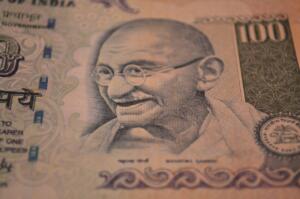
【Relationship between cotton and people④】
※The image shows Mahatma Gandhi, Indian lawyer, religious and political leader. He is known as the father of Indian independence.
When German Karl Marx began his meticulous research on the poor workers in the British textile region of Lancashire, the country was in the midst of a huge cotton boom. Britain imported Indian cotton as a raw material exclusively through the British East India Company, which had almost complete control over its prices.
The British at that time confronted India with a thoroughgoing protectionist policy, combining the overwhelming dominance of the British Empire with a policy of protecting the cotton industry that was beginning to build prosperity in its own country.
The Indian cotton industry was being molded into the mold of "Indians should export only good quality cotton at a set price to the mills in Lancashire through the British East India Company.
All Indian cotton products were made by hand, and the quality was extremely high. However, no matter how much cotton, the raw material, was sold to the British, it was a primary product (agricultural product) with a controlled price, so added value could not be created by adding processing wages, and Indian wages fell very low, forcing people to live from hand to mouth.
(Whether the mechanism for buying cheaply was a tariff barrier, price manipulation using Indian brokers, or some other method, I have not yet researched to my satisfaction. Since India was a British colony, one can only assume that there was some effective means)
British consumers were said to be very satisfied with the low prices at which cotton products could be purchased, and even the common man began to buy cotton underwear. By keeping down the purchase price of the raw material, Indian cotton, Lancashire's textile-related industries amassed enormous wealth.
Meanwhile, the Indian cotton industry was hit hard. People who had been engaged in cotton ginning (extracting the seeds), spinning (making yarn), weaving (making fabrics), and dyeing (because it was a natural material, there was a great deal of employment) quickly lost their means of livelihood, and the number of people suffering from hunger in India, where the climate is severe, increased dramatically.
Mahatma Gandhi appeared at such a time. Gandhi told his people, "Do not wear British cotton goods. Wearing cotton products made in the traditional Indian way will save our country." He strongly led the movement to boycott British products.
This attitude of Gandhi infuriated Britain's Winston Churchill, and the conflict between India and Britain over cotton became increasingly tense.
